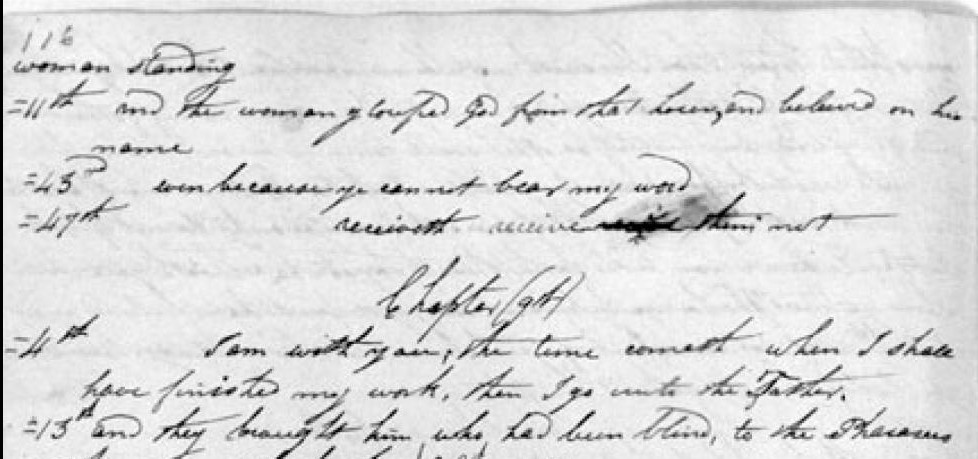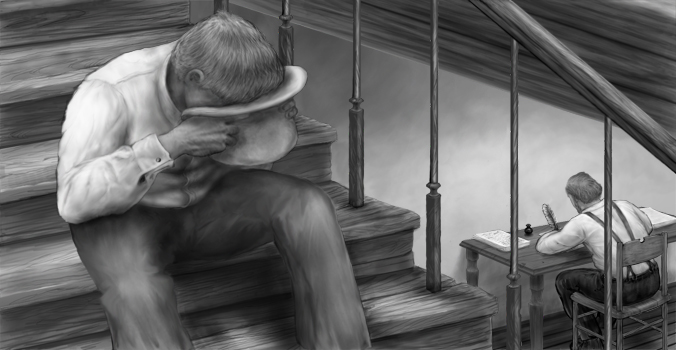Question
Dear Gramps,
I’ve read some of your articles regarding polygamy in the church. They answered some of my questions but I’ve read some stuff recently that the Church has released and I can’t shake this heavy feeling weighing on me. I’ve been praying about it a lot to find peace on the matter but I would love some additional insight. I don’t understand why God would send an angel to Joseph Smith to threaten him to take more than one wife. I don’t get the point in having more than one wife if you aren’t going to have children with them. Why did God make Joseph marry so many young women? Won’t they have the option to marry in heaven? I don’t understand why men need more than one wife. Doesn’t that go against the foundation of the family? I’m distressed because in D&C it says we will be destroyed if we don’t accept this doctrine. Please help.
Mauri
Answer
Hi Mauri,
I assume you’re referring to the recent essay published on lds.org and titled Plural Marriage in Kirtland and Nauvoo.
I admit I do not know why God commanded Joseph to do what he did regarding polygamy. There are many reasons I don’t know, but one of the most important is that I have never sought to find out. Why not? Because it doesn’t touch my life. It doesn’t impact what I am supposed to do, how I relate to my own wife, children, grandchildren, or really anything else that I deal with. For me, it’s a purely academic question, and it just doesn’t interest me enough to make me take any serious effort to understand it.
If it weighs heavily on your mind, though, then you must do something about that. There are several possible avenues you can explore:
- Ignore the issue and hope it goes away.
- Ask of God and seek diligently until you receive an answer that satisfies you.
- Examine your own life and figure out how this topic touches you personally, then go before God and find out how to resolve those issues that impact you personally.
- Put this issue on the back burner, so to speak. Accept it as an issue that you don’t understand at present, but that at some point you’ll get back to, and then go on with your life for the time being.
#1 rarely works. For this particular issue, I would say #1 will never work, because the issue is a historical reality that won’t suddenly disappear.
At first glance, #2 looks like a reasonable course of action. But God does not always answer all our questions to our satisfaction merely because we ask. Ask, and we shall receive, but we shall receive when God thinks it appropriate and in the way God wills. If you have sufficient faith and spiritual maturity to receive an answer, you certainly will. But many of us have questions about things that we are not spiritually prepared to understand. So you may not get an answer that you find satisfying.
If you can follow #3, it’s a very good way to go. It requires mature judgment and the humility to recognize what you do and do not need; you may well determine, as I have done, that the question doesn’t really impact you at all. Then your question becomes one of curiosity rather than of need to understand, in which case you can ask and explore but have no real claim on requiring an answer.
Which brings us to #4. This is something that I suspect every Saint has to do at some point. This is where you experience a trial of your faith, a trial through which all of us must pass.
There are some things that I do not understand. Maybe you do, but your understanding won’t help me. I need my own. And maybe I simply am not prepared to receive an answer to that question. Maybe I lack the maturity or the experience or the background information to understand something. When I ask God to know these things, in his mercy He might tell me, “Wait. The time for you to understand is not yet.” And then it’s my job to wait on the Lord’s time.
Notice that I have not even attempted to answer your questions yet. I have some ideas that may or may not be of any use to you. But ultimately, when God has not publicly revealed the reasons behind some doctrine, any discussion of those reasons is really just speculation. My speculation is as good as (and as useless as) anyone else’s. In the end, the answers you need will come from God, and not from me.
But, for what they’re worth, here are some ideas:
Most happily married men would be reluctant to take multiple wives. Joseph was no different. It’s not overly surprising that Joseph, faithful and obedient though he tried to be, might require some motivation to fulfill this commandment. Where God gives much, he also requires much, and Joseph was given more than perhaps any other man in this dispensation. God commanded plural marriage and required obedience to this principle, even if it wasn’t easy. Joseph needed to understand that this was no light thing required of him; his very salvation was at stake.
In the Book of Mormon, Jacob taught the Nephites that they were never allowed to live polygamy unless God specifically commanded them to do so, and that God would command plural marriage only when he wanted to raise up a people unto himself. This idea of raising up a chosen people appears to have been the case early in the restoration of the Church, which may account for why the commandment was given.
Joseph married women when he felt constrained by the commandments of God to do so. In some cases, it appears that Joseph felt (or had revealed to him) that some specific woman needed to be sealed to him as his wife in eternity.
The foundation of the family is one man and one woman united in marriage. This is true now, and has always been true. Plural marriage did not consist of a family composed of one man and many wives. In plural marriage, the man and each wife (and their children) constituted a family. If a man had three wives, then he had three families, not one. This is no picky point of definition; this is fundamental to the understanding of what a family is.
The Doctrine and Covenants records that Joseph Smith was required to both accept and practice the doctrine of polygamy, or he would be destroyed. That commandment is not extended to us; on the contrary, we have been commanded to take only one wife, and to love her with all our hearts.
These are some of my thoughts on the matter. In the end, they are not important; what is important is what you determine from the Lord. I would encourage you in any case to consider how much this historical doctrine touches your life today. I suggest that it may not be something with which you need to concern yourself.
Gramps







